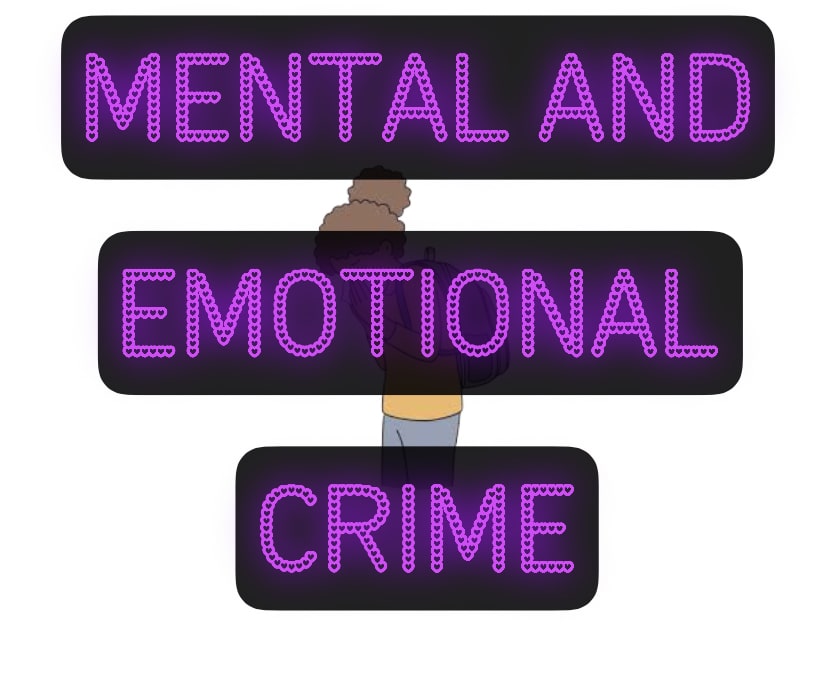
Introduction
In a world where legal definitions often focus on tangible evidence, emotional crime proves to be a complex labyrinth of harm that surpasses traditional boundaries. Unlike other forms of crime, emotional crimes operate in the hidden realms of human relationships, leaving victims grappling with wounds that may not be visible but are undoubtedly deep.
The Complex Nature of Emotional Crime
Emotional crime extends far beyond the familiar and clear-cut lines of legality, venturing into the intricate and complex territories of human emotions. Unlike conventional crimes with tangible evidence, emotional offenses delve into a spectrum of behaviors deeply entrenched in emotional manipulation, psychological distress, and the deliberate infliction of harm on an individual’s mental well-being.
The elusive nature of emotional crime lies in its ability to operate within the shadows of human connections, where the evidence is not always visible or easily quantifiable. It encompasses a diverse array of actions, from gaslighting to emotional manipulation, leaving victims grappling with scars that may be invisible to the naked eye but undeniably profound in their impact.
This multifaceted nature challenges our traditional understanding of justice, as legal frameworks designed for tangible crimes struggle to grapple with the intangible complexities of emotional harm. The scars left by emotional crimes may not manifest physically, but the psychological aftermath is resounding, permeating the very fabric of an individual’s well-being.
Recognizing emotional crime demands a shift in perspective—one that acknowledges the intricate interplay of emotions and the profound consequences of their manipulation. It challenges us to reassess the adequacy of punitive measures in addressing the nuanced harm inflicted on an individual’s mental health. The pursuit of justice for emotional crimes necessitates a comprehensive understanding that extends beyond conventional legal frameworks
The Profound Effect on Mental Well-being
The aftermath of emotional crimes is deeply felt in an individual’s mental health. From gaslighting to manipulation, victims often carry the weight of psychological distress long after the emotional crime has occurred. Addressing and acknowledging this impact necessitates a holistic understanding that goes beyond mere punitive measures.
Balancing Empathy and Accountability
In the pursuit of justice for emotional crimes, striking a delicate balance between empathy and accountability is paramount. Acknowledging the intricate nature of emotional harm, it is essential to create an environment that not only understands the complexities but also empowers victims to break free from the invisible chains of manipulation. This delicate equilibrium ensures that justice is not only served but is also accompanied by a compassionate recognition of the emotional toll endured by those affected.
Redefining Justice
The imperative to redefine justice in the face of emotional crimes is a call for a more compassionate and comprehensive legal approach. It signals a departure from the rigid confines of traditional justice systems, pushing us toward a more nuanced understanding of accountability and healing. By recognizing the significance of emotional well-being within the realm of justice, we embark on a transformative journey that aims to mend the emotional scars inflicted by crimes that extend beyond the visible spectrum.
Conclusion
Emotional crime challenges our traditional notions of wrongdoing, urging us to look beyond the visible and confront the shadows that linger within our interpersonal connections. Navigating this complex terrain requires a collective effort to interweave empathy and accountability into the fabric of justice, creating a society that recognizes and addresses the profound impact of emotional harm.